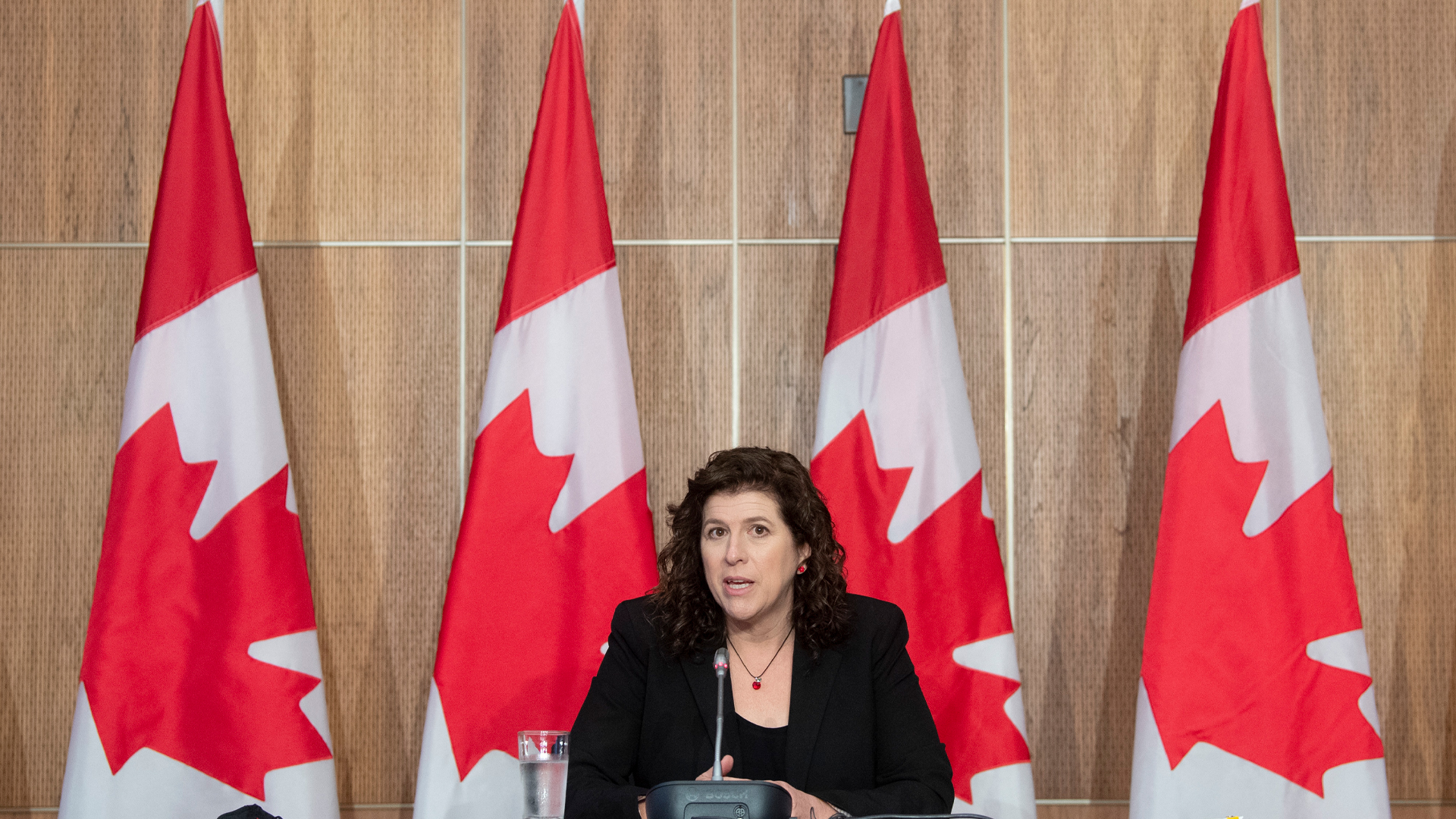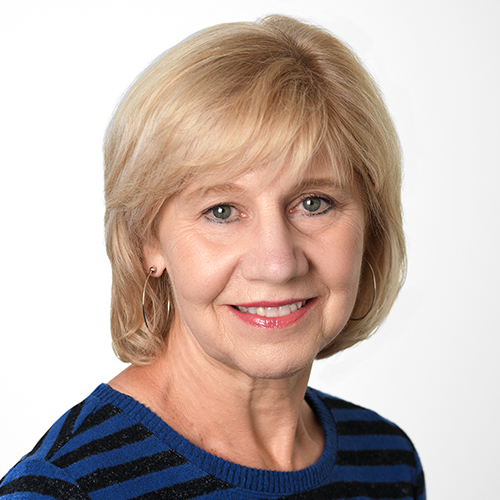
Canada’s auditor general is relaunching a crusade for a new budgeting process that will protect her independence and ensure the office is properly funded to carry out the work of her mandate.
Karen Hogan is turning her attention toward finding a new funding mechanism after a long wrangle for $25 million in additional money to relieve financial pressures that forced the office to delay audits and for a much-needed overhaul of obsolete technology and processes.
“I said that when I receive the additional funding, the long-term objective will be to find a better way to have an independent funding mechanism,” said Hogan.
“When you’re dependent on getting funding from an organization that you audit, then it has an ability to impact your independence.”
Hogan also has the support of fellow parliamentary watchdogs who are united in the need for an independent process. What it would look like is unclear other than it would involve Parliament – to which they all report.
The information commissioner has had her own funding struggle. Caroline Maynard received stop-gap funding for several years to handle a backlog of complaints until she finally got an additional $3 million in permanent funding last year. Her predecessor Suzanne Legault endured a cash crunch that left the office almost broke.
“While we have been successful in obtaining some funding through the existing mechanism, we don’t see this as a substitute for what we are advocating: a funding mechanism that reflects the independent role played by the agents of Parliament,” the commission said in an email.
The case for having a federal evaluator general
Some public service executives burned out by crisis management
The search for a new funding mechanism is tug-of-war between control and accountability that’s dragged on for years. One senior bureaucrat summed it up: “Central agencies control the operations of government, and Treasury Board, PCO [Privy Council Office] and Finance don’t easily give up their authorities.”
It boils down to the inherent conflict of interest of agents going cap-in-hand for money from the government they scrutinize. Each time the debate surfaces, MPs rail about it, reports are written, new mechanisms are proposed, but it never gets fixed.
The issue doesn’t appear to be on the government’s radar, especially with a spending review getting underway. But parliamentary budget officer Yves Giroux said the problem won’t go away.
“Now that the auditor general addressed her funding pressures, I think the issue is going to be on the backburner, but it will come back if and when another big agent is underfunded for its mandate,” Giroux said.
Giroux and ethics commissioner Mario Dion have different budget processes because their offices are created under the Parliament of Canada Act. Giroux’s budget is studied by the Speakers of the House of Commons and the Senate and then sent to Treasury Board. Dion’s budget goes to the House Speaker who sends it to Treasury Board. (Speakers traditionally get the budgets they ask for to avoid any constitutional tussle over ministers challenging the will of Parliament to fund its operations.)
The official languages commissioner could be the next in line looking for additional funding to handle an expanded mandate with the proposed overhaul of the Official Languages Act. The privacy commissioner could then follow when the government modernizes privacy laws, as promised.
“Although our organization has not recently sought new funding to support its ongoing operations, we continue to see the value of an independent funding mechanism,” the official languages commission said in a statement.
The auditor general is Canada’s first officer of Parliament, created shortly after Confederation to check government spending. In the firmament of the nine agents of Parliament, the auditor general, with a $117-million budget, is the uber-watchdog, the most visible and often better known than ministers.
Paul Thomas, professor emeritus at the University of Manitoba who studied agents of Parliament at all levels of government, said they can’t have “open-ended budgets and spend as much as they think they need.” But he said finding a solution invariably breaks down over the basics of the Westminster system.
Agents are created to be independent and impartial and help hold the government to account. They aren’t employees of Parliament or the public service and they report directly to Parliament, not to ministers.
“The foundational principle of Canada’s democracy is responsible ministers determine spending … and you don’t get free tickets even though you serve Parliament,” said Thomas.
The argument is, why should agents get special consideration and not be treated like any other department using taxpayers’ money? Also, Treasury Board’s job is to provide oversight and the stewardship of public funds – and has the staff and expertise to do it.
The government did try a new mechanism in 2005 with the creation of the parliamentary advisory panel on funding and oversight of officers of Parliament.
It was a pilot project to oversee the work of agents and included MPs from all parties and chaired by the Speaker of the House of Commons. Treasury Board still approved funding, but the all-party panel reviewed all agents’ budget requests and advised Treasury Board on how much money they needed.
In 2011, seven agents of Parliament – led by then auditor general Sheila Fraser – all but begged MPs and senators to do a better job of scrutinizing their work. At the time, memories were fresh of the disgrace of two former agents – privacy commissioner George Radwanski and integrity commissioner Christiane Ouimet.
This unprecedented appeal included a call for their own committee where they could go with problems that could compromise their independence. They urged that the advisory panel on funding and oversight be made permanent.
By then, the panel was dead. Some argue that once the Harper government won a majority it was no longer keen on a parliamentary committee that could act independently of the party in power.
The pandemic upended the federal workplace. What comes next?
Never tweet. Social media complicates neutrality of the public service
The issue hit the political agenda in 2015 when Prime Minister Justin Trudeau ordered the government house leader in his mandate letter to ensure “agents of Parliament are properly funded and accountable only to Parliament, not the government of the day.”
Hogan’s predecessor, Michael Ferguson, took up the cause before he died in 2019. He pitched a new funding mechanism to former finance minister Bill Morneau. Ferguson and five other agents of Parliament sent the same proposal to the clerk of the Privy Council.
All this came against the backdrop of Ferguson’s repeated appeals for additional funding. The auditor general’s cash crunch went back to the Harper government’s deficit-driven spending cuts imposed on all departments. The office voluntarily agreed to cut eight per cent of its budget, which came home to roost as the government expanded the auditor general’s mandate and piled on more work.
Ferguson assembled a detailed business plan for a $21.5-million increase in permanent funding but ended up with a fraction of it.
By the time Hogan took the job in June 2020, she inherited a significant funding shortfall and a backlog of work to audit the billions of dollars the government spent on pandemic relief.
With new funding, she has hired 150 additional staff and will now focus on modernizing office operations and increasing the number performance audits, the value-for-money examination of government programs. The office has scaled back those audits to 14 per year compared to 27 per year pre-pandemic.
Shortly after Ferguson’s death, the public accounts committee issued a report, Do Service Well, dedicated to Ferguson. It pointedly recommended a “statutory fixed mechanism” to ensure the auditor general gets “stable, long-term and predictable funding” without having to lobby the Finance Department or deal with the “vagaries of parliamentary cycles.”
Ferguson suggested a formula that tied funding to government expenditures – the more spending, the more work for his office. That doesn’t work as well for agents whose mandate is built on investigating complaints. Some suggest their budgets should go to the parliamentary committee they report to, like the auditor general does to the public accounts committee or the official languages commissioner to the official languages committee.
The all-party advisory panel tried in 2005 is still seen as a workable option. A Public Policy Forum report into the role of agents of Parliament recommended reviving it.
Kevin Page, the first parliamentary budget officer, said Parliament should have the “decisive role in the funding and oversight of its agents.” But he also supports an external review of the work the agents do for Parliament.
But Page said it’s been an uphill battle because governments are loathe to “have more than one hand dipping into the public purse” and “give up power to the opposition.”
Thomas, of the University of Manitoba, argues independence goes beyond structures and process. It’s also tied up with leadership and culture. He said the auditor general’s office has a deeply entrenched culture of independence and a “semi-adversarial role” in dealing with government.
But Thomas said it may be time to go beyond funding and examine the role of these agents as government changes.
“Their role must evolve in response to changing external conditions, changed approaches to governing and steadily rising public demands for enhanced accountability,” said Thomas.









